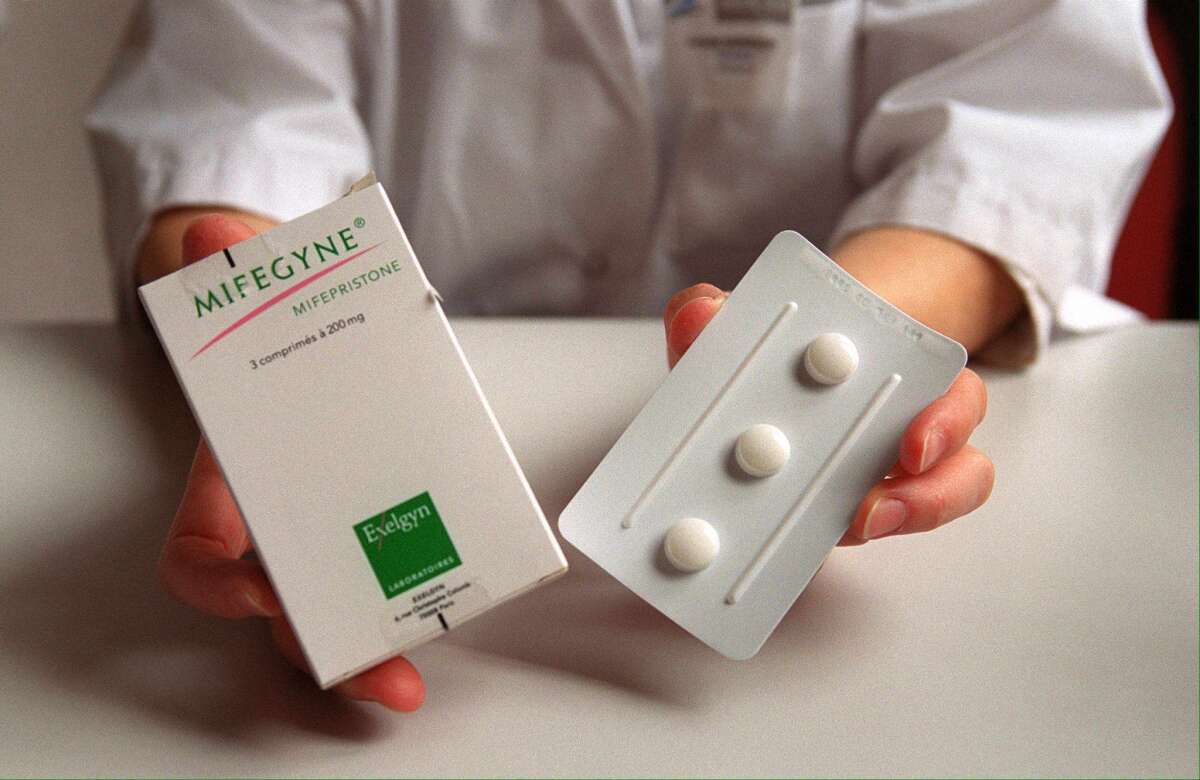Abortion medication to be available at California’s college health centers under new law

- Share via
SACRAMENTO — California will become the first state in the nation to require public universities to provide access to abortion pills on campus under a bill signed by Gov. Gavin Newsom on Friday.
Senate Bill 24 by state Sen. Connie Leyva (D-Chino) will go into effect in 2023, with the University of California and California State University systems required to offer students medical abortions. A medical abortion is a nonsurgical way to terminate a pregnancy that involves taking two prescription pills hours apart during a woman’s first 10 weeks of pregnancy to induce a miscarriage. It is different than the morning-after pill, which releases a high dose of a synthetic hormone found in birth control pills that delays or stops the release of an egg.
“As other states and the federal government go backward, restricting reproductive freedom, in California we are moving forward, expanding access and reaffirming a woman’s right to choose,” Newsom said in a written statement.
“We’re removing barriers to reproductive health -- increasing access on college campuses and using technology to modernize how patients interact with providers.”
University healthcare centers currently refer students to off-campus facilities for abortion services when requested. Supporters of the bill said students, particularly those without cars, have a difficult time getting to off-campus health facilities or paying for the cost of the medication.
A 2018 study published in the Journal of Adolescent Health estimated that 322 to 519 students at California’s public universities seek medical abortions each month. The average cost of a medical abortion was $604 and 62% of students were more than 30 minutes away from the closest abortion facility when using public transportation.
“The clinic closest to my campus was almost 11 miles away and a 45-minute bus ride one way,” said Zoe Murray, a recent UC Santa Barbara graduate who sought an abortion three years ago while she was a sophomore at the school. “Not every student has a car on campus and certainly not every student can afford to miss classes, their jobs or their families for that much time.”
Last year, then-Gov. Jerry Brown vetoed a similar measure, saying the bill was “not necessary” because abortion services were “widely available” to students at off-campus clinics. After Brown’s veto, Newsom — then the state’s lieutenant governor and in the midst of his gubernatorial campaign — said he would have signed Leyva’s bill.
The bill requires the use of $10.3 million that has been raised from private donors to pay for operating costs. Newsom’s Department of Finance opposed SB 24, saying private funds were likely to fall short of what would be needed to offer services at the 34 public universities in the state. Student health centers at public universities in the state already offer gynecological exams, birth control, pregnancy counseling and other healthcare, but not abortion services.
“In a time when states across our country are rolling back women’s healthcare and access to abortion, California continues to lead the nation to protect every individual’s right to choose,” Leyva said in a statement.
The bill was opposed by conservative and religious groups. In an open letter, Bishop Jaime Soto, president of the California Catholic Conference, urged all Catholics and other Christians to pray for SB 24 to be defeated in order to protect “infants and young college-age women from the scourge of abortion.”
Newsom also signed legislation that streamlines access to birth control medication provided by Planned Parenthood, allowing women to be prescribed the drugs through an app on a smartphone. Prior to the signing of the bill, the assumption was that California law required use of videoconferencing for long-distance prescriptions.
More to Read
Sign up for Essential California
The most important California stories and recommendations in your inbox every morning.
You may occasionally receive promotional content from the Los Angeles Times.











